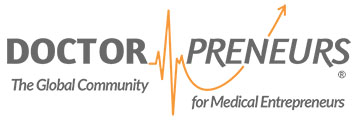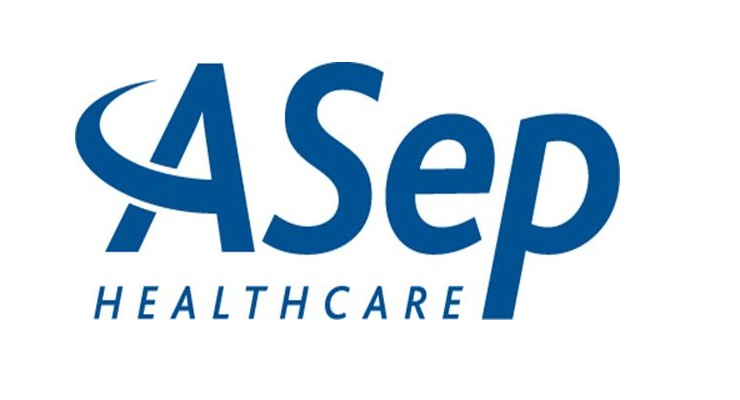 Ryan Kerstein is a practicing surgeon, entrepreneur and management consultant. In 2004, he co-founded ASep- a company that sells Tournistrip, a single-use tourniquet he designed as a student. To date, they have sold 25milllion units across 30 countries worldwide.
Ryan Kerstein is a practicing surgeon, entrepreneur and management consultant. In 2004, he co-founded ASep- a company that sells Tournistrip, a single-use tourniquet he designed as a student. To date, they have sold 25milllion units across 30 countries worldwide.
In 2015, Ryan set up the Innovation group within the British Association of Plastic and Reconstructive Surgeons (BAPRAS). This is a platform for ideas-sharing, support and networking amongst Plastic surgeons in the UK. Ryan worked for two years at Boston Consulting Group. Here he worked on big data, change management and Health Tech projects within the UK and internationally. In March 2018, Ryan returned to full-time clinical practice as a Plastic Surgeon. He balances this work with ASep, his new startup called Lister Care (more below) and his role as Editor for the Royal College of Surgeons Technology Bulletin.
Ryan, you’re an interesting example of someone who has left medicine and then returned. What were the benefits of this?
BCG taught me a huge range of skills that I’m trying to introduce to my current practice. For example, we’ve introduced exit interviews for the House Officers who rotate through the department (a common practice in companies). In medicine, no one talks to people to ask them what their experience was like or how we can improve it. We’ve been changing the roles based on the feedback we’ve received. I’ve also learnt things like how to put a presentation together, how to tell that compelling story about why ‘x’ needs to change. It is a skillset that isn’t often taught in medicine.
Would you recommend these ‘medical secondments’?
I’d recommend these medical secondments to anyone who is that way inclined.
If you really want to get involved in medical technology from the ‘doctor point of view,’ I think that there is value in being current, in the system, and seeing, live, what the problems are as you very quickly forget (these). If you can create that portfolio role where you can sit in both camps, I think that you can be much more effective in what you can create. I think there is an argument for coming back (to medicine) and for knowing what the problems are.
In a week where Matt Hancock launched NHSx and with the initial successes of the clinical entrepreneur programme, how are you feeling for the future of innovation within healthcare and what will this look like?
From the start of the year there’s been the Future of Surgery Commission report, the Topol report, NHSx has been set up, there is lots of publicity around faxers and pagers and Professor Young and the Clinical Entrepreneur programme have been pushing ahead. It’s super positive. However, we are at that early phase where we need to ensure the right tech is being picked up and adopted. Then we need to address the barriers. Things can take such a long time, especially for NHS IT. I’m optimistic, but there are still a lot of steps. It’s not just about the tech but the culture that goes with it. This (culture) is changing but it’s going to be a while yet.
Are there any opportunities for medics that you’re excited about at the moment?
Yeah-huge opportunities! There are a lot of hackathons. These are events that mix clinicians (with or without the experience) with tech-based people and designers etc. We say, ‘you are the new MDT, what can you come up with?’ I think the future may be where you have deanery level hackathons to come up with solutions to NHS problems.
It’s possible to take an elective within a startup or management consultancy firm and increasing numbers of people are taking time out of training, with endorsement from training bodies like the Royal College of Surgeons. There are also internal programmes and fellowships including the Clinical Entrepreneur programme and the Topol digital health fellowships. Barts Health have a digital fellow post that is part General Surgery and part digital health, supervised by Shafi Ahmed.
There are also new regulation standards coming in that will allow software to access patient data more easily. There are further opportunities for medics at board level. More hospitals are introducing Chief Clinical Information officers (CCIO), which is a great opportunity for tech based/entrepreneur based doctors to have bigger impact within their trust.
A lot of healthcare professionals have great ideas but it’s difficult to take your idea to fruition. You’ve talked previously on the Venturi podcast about how, ‘you cannot do these things on your own… getting the right people on the bus and driving (the bus) forward is so important.’ How do you fill your bus?
Yeah, firstly, don’t be afraid to contact people if you think someone fits the brief or may know someone who does fit the brief. Things like LinkedIn and Twitter mean people are available and lots of people are keen to help or connect you to others. I’ve found people in the tech, entrepreneur and healthcare space helpful so reach out and say I need help!
Secondly, go to Hackathons and various digital health conferences. Go and meet people and make that connection. Even if its just a ‘Hi’, that intro could be really useful in the future. So just go and talk to people and start those connections.
Thirdly, once you’ve got that idea, don’t sit back and hold it. Start talking to people about it and if you’re convinced there is amazing intellectual property (IP) get advice from an IP solicitor. But you have to talk to people about your idea if you want to move it forward, you can’t do it alone.
Lastly, say yes! So many cool things have come from things I said yes to that subsequently have led to something else.
Don’t be afraid to contact people if you think someone fits the brief or may know someone who does fit the brief.
Ok, so tell us about your new startup, Lister Care?
So Lister Care came out of a Hackathon. There were a couple of surgeons in the team talking about the things we didn’t like. For example, patients not being ready for operations and the duplication of work throughout the day. Lister Care aims to educate and empower the patients and to involve them in the process. The system has been designed to get rid of the duplication and educate and improve communications
You obviously have a lot going on! Do you have any life hacks to manage this workload?
I think it’s about being very disciplined. In the evenings it’s possible to get emails off. I block days off to get stuff done and make constant lists to tick off. But the lists seem to get bigger and bigger! I don’t have a great system but it’s seeing what I can fit in and when and trying to stick to it even if more fun stuff comes up.
Finally, if you were invited to your old medical school to give a speech to all of the graduates on graduation day, what would you say?
Um, I like Hashtag ABCD. It stands for ‘always be connecting dots.’ When you’re on the ward, look for problems and think about similarities between the issues. Think how the airline industry have approached it or Disney when they bring out a movie or whatever it is. Recognise the problem but realise that it doesn’t need to stay like that. We may not have the answer inside medicine, but if we look outside of medicine there is usually the answer. Then also connect the person dots, go out and meet people and realise that they may be the person who’d be great to sort out your problem. So yeah, always be connecting the dots.
We may not have the answer inside medicine, but if we look outside of medicine there is usually the answer.

